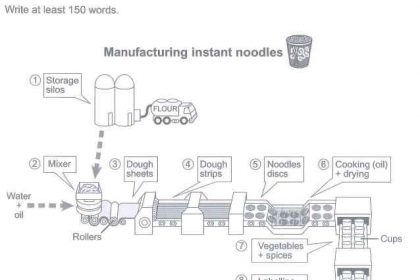Bài mẫu Writing task 2 - Band 8.0 - People now often throw things away when they are broken and buy new ones.
In many parts of the world, people now often throw things away when they are broken and buy new ones. Whereas, in the past, things were repaired and used again.
Why do you think this is the case?
What problems may it lead to?
In many countries, people are increasingly falling into the pattern of purchasing new products instead of fixing broken ones. This phenomenon is the result of consumerism and the change in the purpose of shopping, and it can lead to a range of severe consequences.
The first factor laying the foundation for this throwaway culture is the fact that we are living in a society that encourages mass production and consumption. Consequently, cheap, short-lived products are flooding the market and making it more convenient and cost-effective to replace things than ever before. Another significant reason for this trend is that many people now consider shopping a way to show off their social status and wealth. Aggressive advertising has instilled a misconception in many individuals that the possession of cutting-edge devices or products of internationally well-known brands will help them gain the respect and admiration of others. A good illustration of this is that today some people have no hesitation in spending thousands of dollars buying the latest iPhone model, even though their current phones are still in good condition.
The first negative effect that followers of this trend may shoulder is the financial burden. This is because they need to find different ways to satisfy their desire for shopping, meaning that they have to work harder and have more stress. Even worse, if they cannot manage their budget skilfully, they are likely to get stuck in a cycle of debt. However, the most devastating impact stemming from throwaway culture is on the environment. First, mass production comes with a constantly increasing demand for materials, resulting in the depletion of natural resources. Moreover, the amount of rubbish in the world has been increasing markedly in recent years, leading to the pollution of rivers, oceans and the soil as can be seen in many parts of the world.
In conclusion, our throwaway society is the result of excessive shopping and the shift in the social role of shopping which has relegated the older repair culture to the dustbins of history. Not only does it place more financial pressure on shopaholics, but it also has detrimental impacts on the environment.
Chú ý: Mình cam kết các bài viết mẫu của mình ở website này đều đã được sửa và chấm bới cựu IELTS examiner (phí tầm 20-25 USD/bài) để đảm bảo chất lượng và đủ tốt để các bạn tham khảo. Nếu bạn cần hỏi gì hãy comment nhé.








